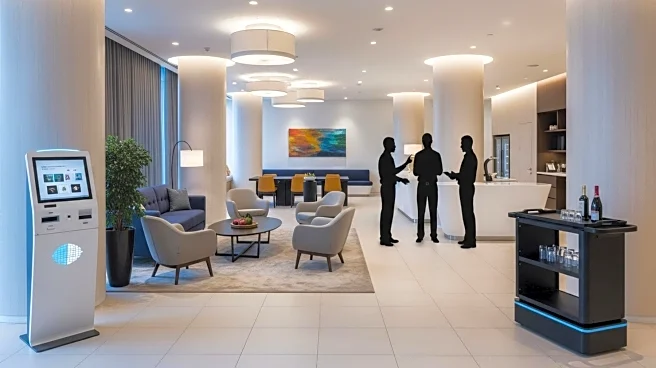What is the story about?
What's Happening?
The hospitality industry is grappling with significant workforce challenges, including high turnover rates and a negative perception of job conditions. Cynthia Hansen, Managing Director of the Innovation Foundation, discusses how social innovation can help reimagine jobs, expand inclusion, and upskill the workforce. Social innovation involves human-centered design, identifying real needs, and co-creating solutions with industries and communities. The Innovation Foundation employs a three-step model: Scan, Build, and Scale, to address these challenges. This approach aims to make hospitality jobs more inclusive, attractive, and sustainable by focusing on skills development, inclusion, and job redesign.
Why It's Important?
The hospitality sector faces a turnover rate of 74%, significantly higher than the average across industries. This high turnover, coupled with a negative perception of hospitality jobs, poses a threat to the industry's sustainability. By adopting social innovation, the industry can tap into untapped talent pools such as women returners, refugees, and youth at risk. This approach not only addresses workforce shortages but also enhances the industry's image by creating more inclusive and sustainable job opportunities. The potential to transform hospitality jobs into career pathways can lead to long-term retention and reduced recruitment costs.
What's Next?
The hospitality industry is encouraged to adopt social innovation practices by rethinking recruitment strategies, partnering with social entrepreneurs, and focusing on skills and attitudes rather than traditional CVs. By implementing flexible shifts and career mobility, the industry can retain talent longer and reduce costs. The Innovation Foundation's open-source approach allows other sectors to adopt similar strategies, potentially leading to widespread changes in workforce management across industries.
Beyond the Headlines
The adoption of social innovation in hospitality could lead to broader societal changes, promoting inclusivity and diversity in the workforce. By focusing on human-centered design and collaboration, the industry can set a precedent for other sectors, demonstrating the benefits of a more inclusive and sustainable approach to workforce management.

















